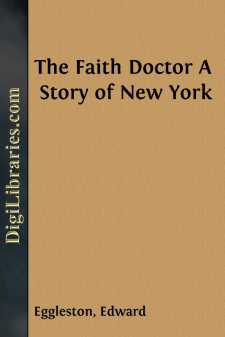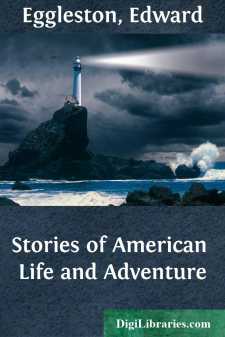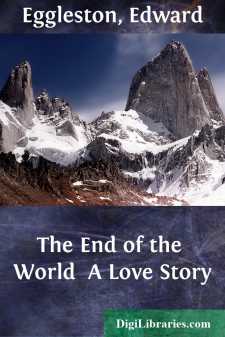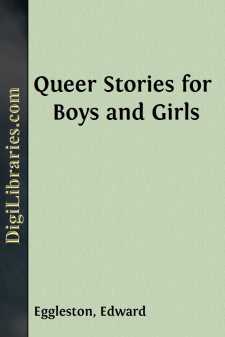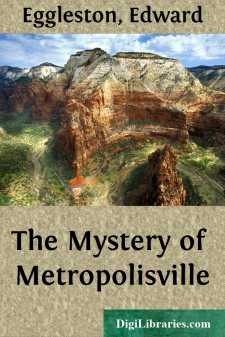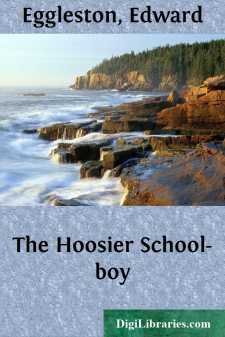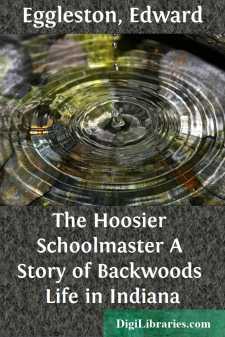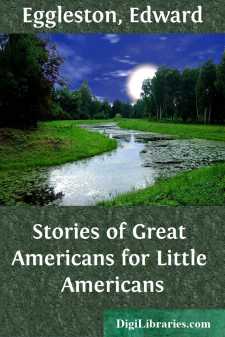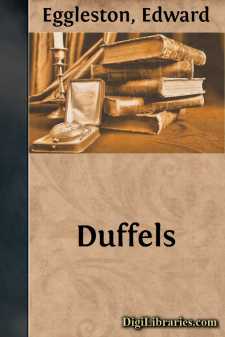Categories
- Antiques & Collectibles 13
- Architecture 36
- Art 48
- Bibles 22
- Biography & Autobiography 813
- Body, Mind & Spirit 142
- Business & Economics 28
- Children's Books 14
- Children's Fiction 11
- Computers 4
- Cooking 94
- Crafts & Hobbies 4
- Drama 346
- Education 46
- Family & Relationships 57
- Fiction 11828
- Games 19
- Gardening 17
- Health & Fitness 34
- History 1377
- House & Home 1
- Humor 147
- Juvenile Fiction 1873
- Juvenile Nonfiction 202
- Language Arts & Disciplines 88
- Law 16
- Literary Collections 686
- Literary Criticism 179
- Mathematics 13
- Medical 41
- Music 40
- Nature 179
- Non-Classifiable 1768
- Performing Arts 7
- Periodicals 1453
- Philosophy 64
- Photography 2
- Poetry 896
- Political Science 203
- Psychology 42
- Reference 154
- Religion 513
- Science 126
- Self-Help 84
- Social Science 81
- Sports & Recreation 34
- Study Aids 3
- Technology & Engineering 59
- Transportation 23
- Travel 463
- True Crime 29
Edward Eggleston
Edward Eggleston was an American historian and novelist, born on December 10, 1837, and died on September 3, 1902. He is best known for his works that depict frontier life in the Midwest, including "The Hoosier Schoolmaster" (1871), which became a significant piece of American regional literature. Eggleston's writings often blended historical narratives with fiction, reflecting his deep interest in American history and cultural development.
Author's Books:
Sort by:
by:
Edward Eggleston
PREFACE. Though there is no life that I know more intimately and none that I have known for so long a period as that of New York, the present story is the first in which I have essayed to depict phases of the complex society of the metropolis. I use the word society in its general, not in its narrow sense, for in no country has the merely "society novel" less reason for being than in ours. The...
more...
by:
Edward Eggleston
A WHITE BOY AMONG THE INDIANS. Among the people that came to Virginia in 1609, two years after the colony was planted, was a boy named Henry Spelman. He was the son of a well-known man. He had been a bad and troublesome boy in England, and his family sent him to Virginia, thinking that he might be better in the new country. At least his friends thought he would not trouble them so much when he was so...
more...
by:
Edward Eggleston
PREFACE. [IN THE POTENTIAL MOOD.] It is the pretty unanimous conclusion of book-writers that prefaces are most unnecessary and useless prependages, since nobody reads them. And it is the pretty unanimous practice of book-writers to continue to write them with such pains and elaborateness as would indicate a belief that the success of a book depends upon the favorable prejudice begotten of u graceful...
more...
by:
Edward Eggleston
A Hoosier Fairy Tale. You think that folks in fine clothes are the only folks that ever see fairies, and that poor folks can't afford them. But in the days of the real old-fashioned "Green Jacket and White Owl's Feather" fairies, it was the poor boy carrying fagots to the cabin of his widowed mother who saw wonders of all sorts wrought by the little people; and it was the poor girl...
more...
by:
Edward Eggleston
CHAPTER I. THE AUTOCRAT OF THE STAGECOACH. "Git up!" No leader of a cavalry charge ever put more authority into his tones than did Whisky Jim, as he drew the lines over his four bay horses in the streets of Red Owl Landing, a village two years old, boasting three thousand inhabitants, and a certain prospect of having four thousand a month later. Even ministers, poets, and writers of unworldly...
more...
by:
Edward Eggleston
THE NEW SCHOLAR While the larger boys in the village school of Greenbank were having a game of “three old cat” before school-time, there appeared on the playground a strange boy, carrying two books, a slate, and an atlas under his arm. He was evidently from the country, for he wore a suit of brown jeans, or woollen homespun, made up in the natural color of the “black” sheep, as we call it. He...
more...
by:
Edward Eggleston
CHAPTER I A PRIVATE LESSON FROM A BULLDOG. "Want to be a school-master, do you? You? Well, what would you do in Flat Crick deestrick, I'd like to know? Why, the boys have driv off the last two, and licked the one afore them like blazes. You might teach a summer school, when nothin' but children come. But I 'low it takes a right smart man to be school-master in Flat Crick in the...
more...
by:
Edward Eggleston
STORIES OF GREAT AMERICANS. [Illustration: THE FIRST GOVERNOR IN BOSTON] Before the white people came, there were no houses in this country but the little huts of the In-di-ans. The In-di-an houses were made of bark, or mats, or skins, spread over poles. Some people came to one part of the country. Others started set-tle-ments in other places. When more people came, some of these set-tle-ments grew...
more...
by:
Edward Eggleston
SISTER TABEA. Two weather-beaten stone buildings at Ephrata, in Pennsylvania, remain as monuments on this side of the water of the great pietistic movement in Germany in the early part of the eighteenth century. One of these was called Bethany, the other Sharon. A hundred and thirty or forty years ago there were other buildings with these, and the softening hand of time had not yet touched any of them....
more...


